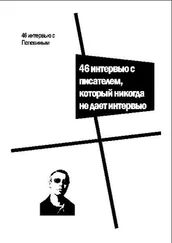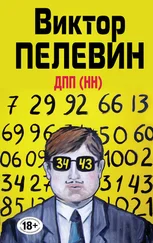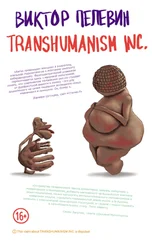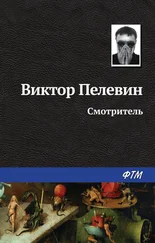Виктор Пелевин - Babylon
Здесь есть возможность читать онлайн «Виктор Пелевин - Babylon» весь текст электронной книги совершенно бесплатно (целиком полную версию без сокращений). В некоторых случаях можно слушать аудио, скачать через торрент в формате fb2 и присутствует краткое содержание. Жанр: Современная проза, на английском языке. Описание произведения, (предисловие) а так же отзывы посетителей доступны на портале библиотеки ЛибКат.
- Название:Babylon
- Автор:
- Жанр:
- Год:неизвестен
- ISBN:нет данных
- Рейтинг книги:5 / 5. Голосов: 1
-
Избранное:Добавить в избранное
- Отзывы:
-
Ваша оценка:
- 100
- 1
- 2
- 3
- 4
- 5
Babylon: краткое содержание, описание и аннотация
Предлагаем к чтению аннотацию, описание, краткое содержание или предисловие (зависит от того, что написал сам автор книги «Babylon»). Если вы не нашли необходимую информацию о книге — напишите в комментариях, мы постараемся отыскать её.
Babylon — читать онлайн бесплатно полную книгу (весь текст) целиком
Ниже представлен текст книги, разбитый по страницам. Система сохранения места последней прочитанной страницы, позволяет с удобством читать онлайн бесплатно книгу «Babylon», без необходимости каждый раз заново искать на чём Вы остановились. Поставьте закладку, и сможете в любой момент перейти на страницу, на которой закончили чтение.
Интервал:
Закладка:
He sat down at the table, laid out his trophies on it and looked them over once again. The palms on the empty Parliament pack and on the photograph were very similar, and he thought they must grow in the same place, in a part of the world he would never get to see - not even in the Russian style, from inside a tank - and if he ever did, it would only be when he no longer needed anything from this woman or this sand or this sea or even from himself. The dark melancholy into which he was plunged by this thought was so profound that at its very deepest point he unexpectedly discovered light: the slogan and the poster for Parliament that he had been searching for suddenly came to him. He hastily pulled out his notebook - the pen turned out to be inside it - and jotted the ideas down:
The poster consists of a photograph of the embankment of the river Moscow taken from the bridge on which the historic tanks stood in October ‘93. On the site of the Parliament building we see a huge pack of Parliament (digital editing). Palms are growing profusely all around it. The slogan is a quotation from the nineteenth-century poet Griboedov:
Sweet and dear Is the smoke of our Motherland
Parliament slogan:
THE MOTHERLAND’S#1 SMOKE!
"Thou lookest out always for number one" he thought gloomily.
Putting the notebook back into his pocket, he gathered up his prizes from the table and took a final glance around the room. The thought flashed through his mind that he could take the beautiful woman running across the sand as a souvenir, but he decided against it. He turned out the light, went out on to the roof and stopped to allow his eyes to grow accustomed to the darkness.
‘What now?’ he thought. To the station.’
CHAPTER 5. Poor Folk
The adventure in the forest outside Moscow proved positively stimulating to Tatarsky’s professional abilities. Scenarios and concepts now came to him far more easily, and Pugin even paid him a small advance for his slogan for Parliament: he said Tatarsky had hit the bull’s-eye, because until ‘ 93 a pack of Parliament had cost the same as a pack of Mariboro, but after those famous events Parliament had rapidly become the most popular cigarette in Moscow, and now they cost twice as much. Subsequently, however, ‘the smoke of the Motherland’ was dispersed without a trace into the thick gloom of a winter that arrived unexpectedly early. The only dubious echo of the slogan left in the snowbound advertising space of Moscow was the phrase: ‘From ship to ball’, another borrowing - by an unknown colleague of Tatarsky’s - from the poet Griboedov. It was to be glimpsed at one time on large hoarding advertisements for menthol cigarettes - a yacht, blue sea and sky, a peaked cap with a sunburst and a pair of long legs. Tatarsky felt a pang of jealousy at this, but not a very powerful one - the girl in the menthol advert had been chosen to suit the taste of such a wide target group that the text seemed spontaneously to read as: ‘From ship to balls’.
For some reason the wave of fly-agaric energy that had swept through his nervous system found its finest outlet in texts for cigarettes - probably for the same reason that the first truly successful experience of love or narcotics determines your preferences for the rest of your life. His next great success (not only in his own opinion, but in the opinion of Pugin, who surprised him once again by paying him) was a text written for Davidoff cigarettes, which was symbolic, because his career had started with them. The text was based on an advertisement for Davidoff Classic that was on all the hoardings in the city centre: dark tones, a close-up of a wasting face with the burden of unbearable knowledge glinting in the eyes, and the inscription:
THE MORE YOU KNOW: DAVIDOFF CLASSIC
At the first sight of the wise, wrinkled face, Tatarsky immediately began wondering just what it was that this foreign smoker knew. The first explanation to come to mind was rather sombre: a visit to the cancer clinic, an X-ray and a dreadful diagnosis.
Tatarsky’s project was in total contrast: a light background, a youthful face expressive of ignorant happiness, a white pack with slim gold letters and the text:
‘FOR IN MUCH WISDOM IS MUCH SORROW AND HE WHO INCREASES KNOWLEDGE INCREASES GRIEF.’ DAVIDOFF LIGHTS
Pugin said Davidoff’s agent would be unlikely to be interested, but some other cigarette market leader might very well take it. ‘I’ll have a word with Azadovsky.’ he said casually. ‘He’s got an exclusive on sixteen brands.’ It seemed to Tatarsky he’d heard that name before. He jotted the phrase down in his notebook and casually dropped it into several conversations with clients, but his natural shyness found expression in the fact that he usually halved the number of brands.
At the beginning of winter Tatarsky had his one-room flat redecorated after a fashion (against the background of cornflower-blue Soviet-era tiles that were coming away from the wall, the expensive Italian mixer-tap looked like a gold tooth in the mouth of a leper, but he had no money for major renovations). He also bought a new computer, although he had no particular need for it - he’d simply begun to have difficulties getting texts printed out that he’d typed in his favourite word-processing program: one more muffled groan under the iron boot of Microsoft. Tatarsky didn’t feel seriously aggrieved, although he did note the profoundly symbolic nature of the event: his interface program - a medium by its very nature - was becoming the most important message, taking over an incredible amount of computer memory space and resources, and that reminded him very much of a brazen new Russian running the funds for teachers’ salaries through the accounts in his bank.
The further he penetrated into the jungles of the advertising business, the more questions he had to which he couldn’t find the answer, neither in Al Rice’s Positioning: a Battle for your Mind, nor even in the latest book on the same topic. The final Positioning. One colleague swore to Tatarsky that all the themes that Al Rice hadn’t touched on were analysed in Confessions of an Advertising Man by David Ogilvy. In his heart of hearts Tatarsky suspected Ogilvy was really the same character who appeared for a second in George Orwell’s 1984 in the consciousness of the hero in order to perform an imaginary feat of heroism and then disappear into the ocean of oblivion. The fact that comrade Ogilvy, despite his double unreality, had nonetheless made it to the shore, lit his pipe, donned his tweed jacket and become a world-famous advertising guru filled Tatarsky with a mystical, rapturous admiration for his own profession.
But the book he found particularly helpful was by Rosser Reeves: he discovered two terms in it - ‘penetration’ and ‘involvement’ - that proved very useful when it came to throwing curves. The first project he managed to design on the basis of these two concepts was for Nescafe Gold.
‘It has long been recognised,’ Tatarsky wrote just twenty minutes after he first learned about it, that there are two basic indicators of the effectiveness of an advertising campaign: penetration and involvement. ‘Penetration’ is the percentage of people who remember the advertisement. ‘Involvement’ is the percentage of people the advertisement has persuaded to consume the product. The problem is, however, that a brilliantly scandalous advertisement, capable of producing high-level penetration, is absolutely no guarantee of high levels of involvement. Likewise a campaign that cleverly demonstrates the virtues of a product and is capable of producing high levels of involvement is no guarantee of high-level penetration. Which is why we propose taking a new approach and creating a kind of binary advertising, in which the functions of penetration and involvement will be performed by different sets of information. Let’s examine how this approach would work in an advertising campaign for Nescafe Gold coffee.
Читать дальшеИнтервал:
Закладка:
Похожие книги на «Babylon»
Представляем Вашему вниманию похожие книги на «Babylon» списком для выбора. Мы отобрали схожую по названию и смыслу литературу в надежде предоставить читателям больше вариантов отыскать новые, интересные, ещё непрочитанные произведения.
Обсуждение, отзывы о книге «Babylon» и просто собственные мнения читателей. Оставьте ваши комментарии, напишите, что Вы думаете о произведении, его смысле или главных героях. Укажите что конкретно понравилось, а что нет, и почему Вы так считаете.






